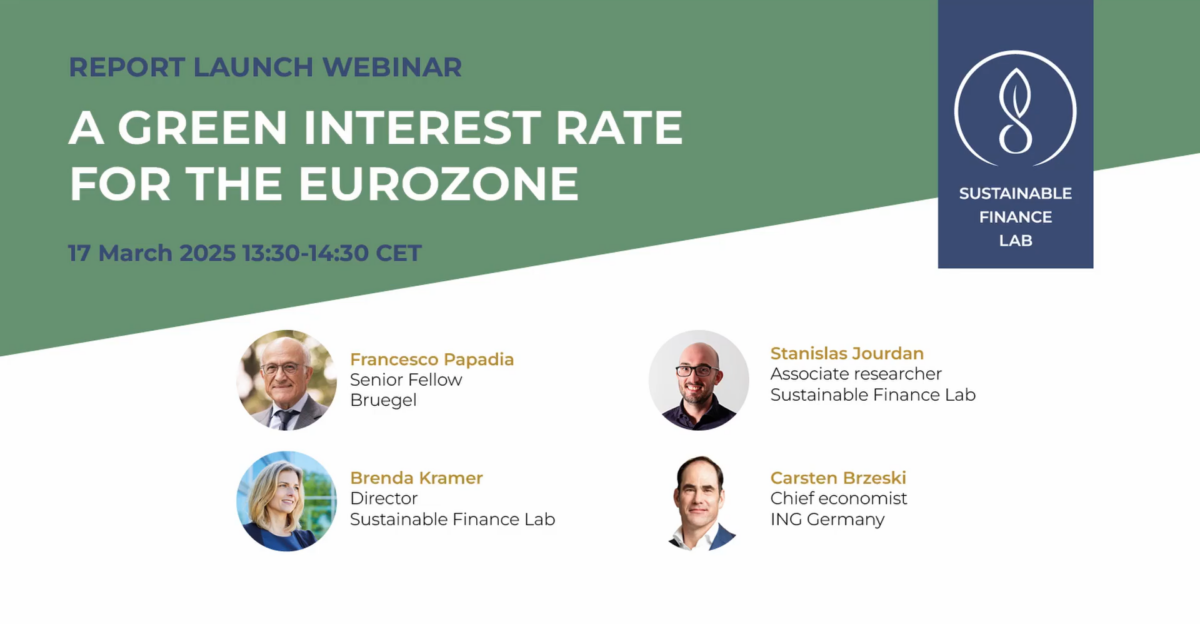Coral reefs teeming with life as a model for cooperation, field building and impact
Sustainable Finance Lab and the Erasmus Platform for Sustainable Value Creation invited John Fullerton, former Wall Street banker turned thought leader on regenerative economics, to meet a select group of Dutch academics and investment professionals. Fullerton applies systems science to economic thinking and has distilled his ideas of how to redesign our economy as a living system into 8 principles.
A young man in the 80s, Fullerton entered the training program at J.P. Morgan, then a relational bank. He saw J.P. Morgan abandon its culture and turn into a transactional bank along with the rest of the industry. Every financial innovation they created with good intentions, like some kind of Frankenstein, took on a life of its own. The finance algorithm is based on exponential growth which will lead to system collapse. This thinking goes as far back as Aristotle, who said it was unnatural to make money from money. Yet today finance keeps growing and growing, becoming an unbearable burden on the rest of the economy. Physics has already proven that everything is connected, and the interconnected science of indigenous knowledge is emerging. Let us move away from low forms of investment like leveraged buyouts based on extraction, speculation, short-termism, and misleading internal rates of return. Finance no longer operates in right relationship. There is a winner and loser in every trade; it’s a zero-sum game. Wealth and ownership concentrates in our economic system. The economist Michael Hudson warns of collapse when we’ve reached this point.Let’s align our economies with how life works.
But nature is also cruel and unfair, the group states several times. Darwinian theory of the survival of the fittest runs deep. Apparently, Darwin’s ideas of “best fit” have long been misunderstood and the myth-busting book, The Dawn of Everything, claims social evolutionism can’t even be considered a science. More and more evidence shows nature’s inherent tendency towards collaboration and cooperation. Fullerton urges us to create the conditions for health by respecting how living systems operate; they operate in service of the whole. It is the only way towards health in the long-term, that applies to the economy and finance as well.
Impact investing and philanthropy should be integral and systemic. The room of impact investors and academics agrees. Yet only 5% of wealth goes to impact investment. But they are also critical of the current approach to impact investing and sustainable finance. ESG is incremental, a way to avoid taking the difficult measures needed. Too often impact investing is mere speculation. Metrics are not measuring what really matters, they mostly reflect inputs rather than outcomes. Output must be real to move beyond speculation. The academics have found that impact investors, like charity organizations, benefit from the halo effect and can make claims without delivering on promises. More attention should be given to measures of field building and cooperation. Impact investments nowadays are too often lonely little plants in a desert, destined to succumb. Needed are coral reefs, breeding grounds for life, for which scale is of the essence.
Moving beyond individual organisations or even coalitions and seeing this ecosystem as a field of advocates that can be bridged together to achieve scale on shared visions. Measurements are needed but on the right indicators, like measures of health, such as diversity in the structure and size of industries. Mondragon in Spain is an example of an economy managed as an ecosystem, profits are capped (restraint being a fundamental value in all ethical systems) and recirculated and capital is allocated to and from parts that shrink or expand. It’s a coop based on empowered participation. What finance is supposed to be, surplus savings of households allocated to investment. This cannot be done through the market alone. We have outgrown the post-World War Bretton Woods institution. It’s time for a new Institution of the Commons a la Peter Barnes, described in his most recent book Ours, to preserve co-inherited wealth. Human accumulation, like our common data, knowledge and wisdom, is also a commons. It should be managed, and rent should be paid, for example if someone in the financial system or big tech wants to extract from the commons they should be taxed a usage fee. Indeed, capitalism began with the enclosure of the commons, and those benefiting from this system want to maintain it. Perhaps it is our time to reestablish the commons.




